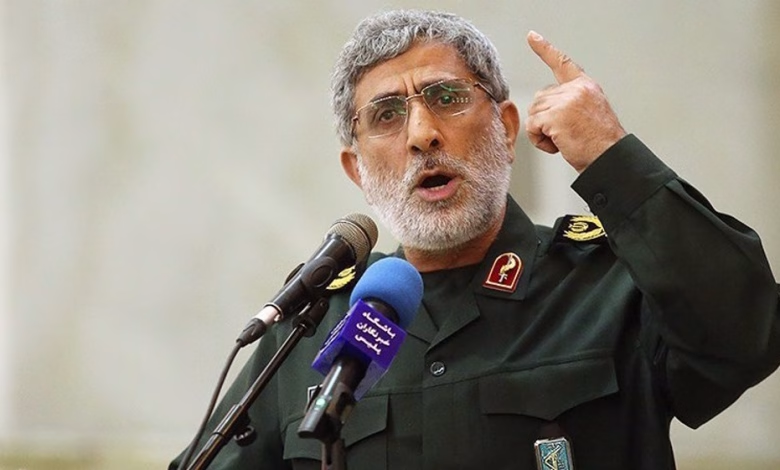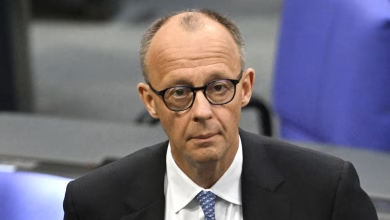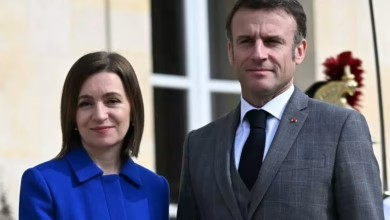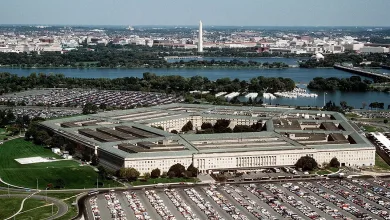Iran’s Quds Force Chief Qaani Attends Funeral of General

- General Abbas Nilforoushan was killed in an Israeli strike in Beirut.
- Quds Force chief Esmail Qaani attended Nilforoushan's funeral in Tehran after weeks of absence.
- Iran is pursuing a ceasefire while asserting readiness for conflict.
- Thousands participated in the funeral, chanting "Death to Israel.
Iranian commander Esmail Qaani made a public appearance on Tuesday after weeks of absence to attend the funeral ceremony for General Abbas Nilforoushan, who was killed in Lebanon last month.
General Abbas Nilforoushan of Iran’s Revolutionary Guards was killed in an Israeli strike on Beirut, along with Hezbollah chief Hassan Nasrallah. His funeral procession began Tuesday morning at Imam Hossein Square in central Tehran, as broadcasted live by state television.
Esmail Qaani, the head of the Quds Force, Iran’s foreign operations arm, made a public appearance at the funeral after weeks of absence. Rumors had circulated that he might have been targeted in an Israeli strike on Lebanon. Dressed in the Guards’ green military uniform, Qaani attended the ceremony, which was attended by a large crowd.
Nilforoushan’s casket was paraded through the crowded streets of Tehran following the funeral ceremony at Imam Hossein Square. Thousands of mourners participated, many carrying yellow Hezbollah banners and Iranian and Palestinian flags, chanting slogans such as “Death to Israel.”
Memorial services for Nilforoushan were also held in Iraq on the previous day. His remains are set to be taken to a farewell ceremony in Tehran later Tuesday, followed by a procession in Qom, south of Tehran. He will ultimately be laid to rest in his hometown of Isfahan on Thursday, after another ceremony in the holy city of Mashhad on Wednesday.
Iran’s foreign ministry stated on Monday that the Islamic Republic would utilize “all its capacities” to hold Israel accountable for the deaths of Nilforoushan and Nasrallah. In a show of retaliation, Iran launched 200 missiles at Israel on October 1, marking its second direct attack on the country.
The missile strike was also a response to the death of Hamas chief Ismail Haniyeh, who was killed in July while attending an inauguration ceremony for Iran’s president in Tehran. In response to the missile attack, Israel has vowed to retaliate, with Defence Minister Yoav Gallant declaring that the response will be “deadly, precise, and surprising.”
Recently, Iran has engaged in high-level diplomatic discussions aimed at establishing a ceasefire in Lebanon and Gaza, while also seeking ways to prevent the conflict from escalating in the region. During a visit to Baghdad, Foreign Minister Abbas Araghchi emphasized that Iran is “fully prepared for a war situation,” but reiterated that “we do not want war, we want peace.” This follows previous missile and drone strikes by Tehran in April in retaliation for an attack on its consulate in Damascus, which it blamed on Israel.






